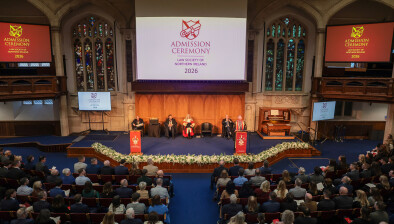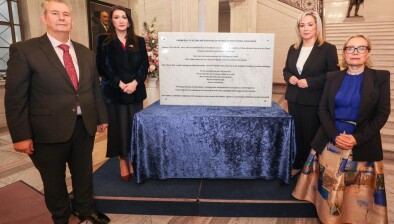NI: UK Supreme Court President addresses Justice Committee

In an address to the Northern Ireland Assembly’s Justice Committee yesterday, President of the UK Supreme Court, Lord Neuberger, discussed developments since the court’s establishment and the importance of modernising the justice systems of the UK.
He was invited to give the committee’s final Justice Innovation seminar, which was hosted by The Bar of Northern Ireland.
Lord Neuberger took the opportunity to list the functions of the court as clarifying, correcting, modernising and reconciling the law and went on to discuss the recent case of Jogee – which corrected a misstep in the law from 1984.
He suggested that the older case of R v R, concerning marital rape, was an example “of the law not being so much corrected as brought up to date”.
He went on to discuss the tension between common law and statute, saying: “The notion that the law should remain ossified until the legislature choose to step in seems wholly out of keeping with the United Kingdom’s approach to law and to constitutional issues. That approach has been distinguished by a flexibility and pragmatism which is very different from countries with a civilian law system based on detailed codes, which leave the judges with no law-making capacity.”
The Supreme Court president also defended judge-made law from arguments that judges lack the “democratic legitimacy” to make law, referring to the lack of “absolute concentration” of power in the UK’s democratic system. He added judicial power is checked by the fact Parliament can legislate where it dislikes judge-made law.
Lord Neuberger also addressed recent criticism he received from some quarters for suggesting the UK does not have a constitution.
Addressing his critics, he said: “The short answer to that point is, as it is with so many arguments, that it depends what you mean by a constitution. On any view, the UK does not have a coherent or embedded constitution; it has some constitutional conventions and some quasi-constitutional statutes, and they are conventions and statutes which can be changed or repealed by Parliament.
“People often refer to Magna Carta and the 1688/9 Bill of Rights as being part of our constitution, but, over the years, almost all the provisions of Magna Carta have been repealed and all the provisions of the Bill of Rights have been repealed or amended, by a simple majority in Parliament.”

Gerry McAlinden QC, chair of the Bar Council, welcomed Lord Neuberger’s visit to Belfast and and highlighted the important innovation work led by Justice Committee chair Alastair Ross MLA.
He said: “We look forward to seeing the Committee’s upcoming report on ‘Justice in the 21st Century’ and the debate on innovation in the Assembly Chamber next Tuesday.”
Mr McAlinden added: “The potential for innovation within the justice sector is not lost on the legal profession in Northern Ireland.
“The Committee’s Digital Justice Conference last year exemplified this with the judiciary and members of the professions highlighting the challenges already being faced regularly by the courts with cases involving social media.
“In addition, the exploration of online dispute resolution in meeting the needs of the justice system and its users in the 21st century has sparked significant debate among our politicians, the judiciary and profession.”









